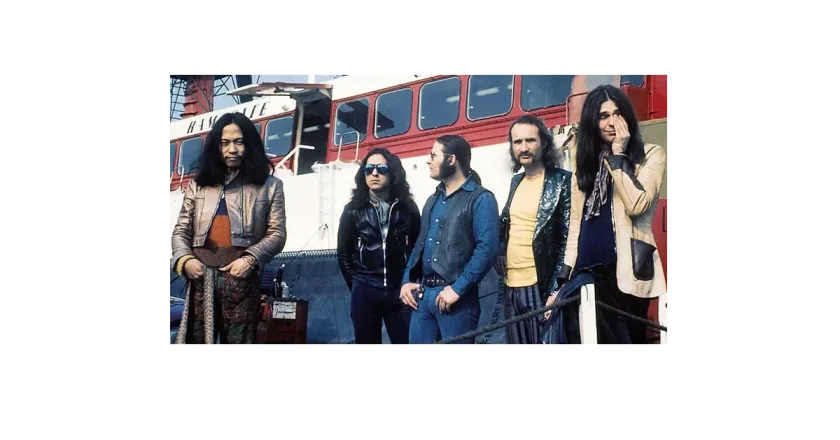Can: The Legendary German Krautrock Band
Founding and Early Years
Can was a pioneering Krautrock band formed in 1968 in Cologne, Germany. The original lineup included keyboardist Irmin Schmidt, bassist Holger Czukay, drummer Jaki Liebezeit, guitarist Michael Karoli, and vocalist Malcolm Mooney. Right from the start, Can stood out for its experimental approach and improvisational style, quickly gaining a cult following within the 1970s avant-garde music scene.
Musical Style and Influences
Can’s music is a unique fusion of rock, jazz, funk, and world music, heavily centered on improvisation and hypnotic rhythms. Strongly influenced by minimalism and psychedelic music, Can challenged traditional song structures, emphasizing extended improvisations and entrancing grooves, making them pioneers in the field of experimental music.
Discography: Key Albums
Over the years, Can produced several landmark albums that helped define their legacy:
“Monster Movie” (1969) – Their debut album, blending rock with free-form improvisations and Mooney’s intense vocal style.
“Tago Mago” (1971) – Considered a masterpiece, this album features experimental and psychedelic sounds with standout tracks like “Halleluhwah.”
“Ege Bamyası” (1972) – A more rhythmic album, with highlights like “Vitamin C” and “Spoon.” The album title is inspired by Turkish cuisine.
“Future Days” (1973) – This album, more atmospheric and ambient-influenced, includes the lengthy piece “Bel Air,” a true musical exploration.
“Soon Over Babaluma” (1974) – The first album after Damo Suzuki’s departure, showing a shift toward a more instrumental approach.
Members and Lineup Changes
Can experienced several lineup changes over the years. After Mooney’s departure, Damo Suzuki, a Japanese vocalist, joined the band. His distinct and expressive vocal style marked classic albums like “Tago Mago” and “Future Days.” When Suzuki left, Can shifted towards a more instrumental focus but retained their experimental spirit.
Live Performances and Improvisation
Can was known for its highly improvisational live performances. Each concert was a unique musical journey, with musicians often reinterpreting songs on the spot, driven by Jaki Liebezeit‘s complex rhythms and dynamic interplay between members. Their shows were more akin to creative sessions than traditional performances, creating a profound connection with the audience.
Influence and Legacy
Can’s impact on modern music is immense. Their creativity and style inspired numerous artists and bands such as Sonic Youth, Radiohead, and The Fall. Their approach to music, where freedom and innovation were paramount, also influenced genres like punk, post-punk, and electronic music.
Continuing Relevance
Can’s work continues to attract listeners and influence new generations of musicians. Their artistic vision and avant-garde approach have left a lasting mark, with their timeless music transcending generational boundaries.
Conclusion: Innovators and Visionaries
Can remains an enduring symbol of musical innovation, constantly pushing the boundaries of artistic expression. Their legacy, characterized by boundless experimentation and creativity, continues to shape the evolution of experimental and Krautrock music.






Pingback: Joy Division: Post-Punk, Sombras Y Voz Interior